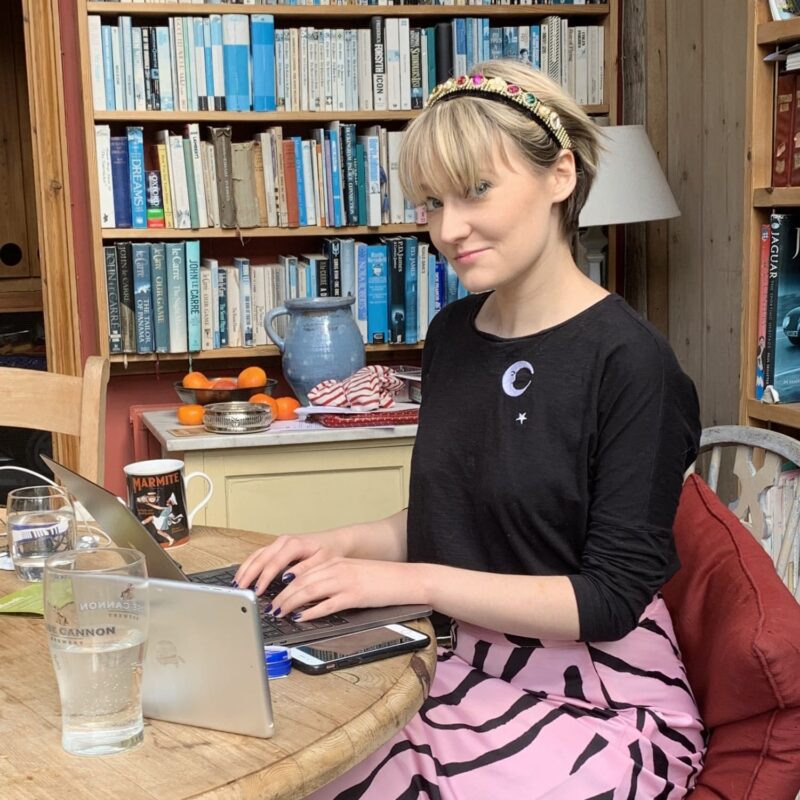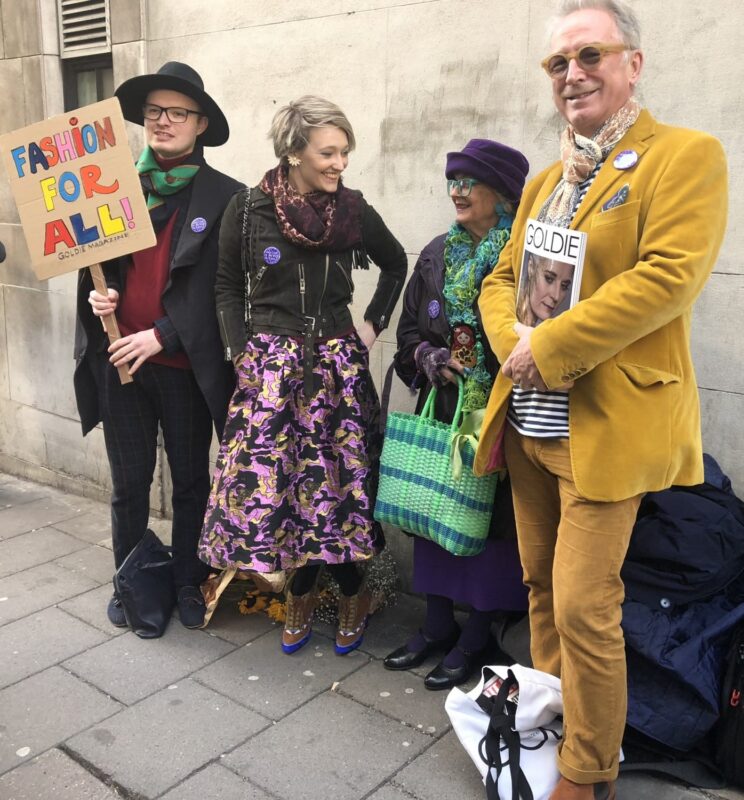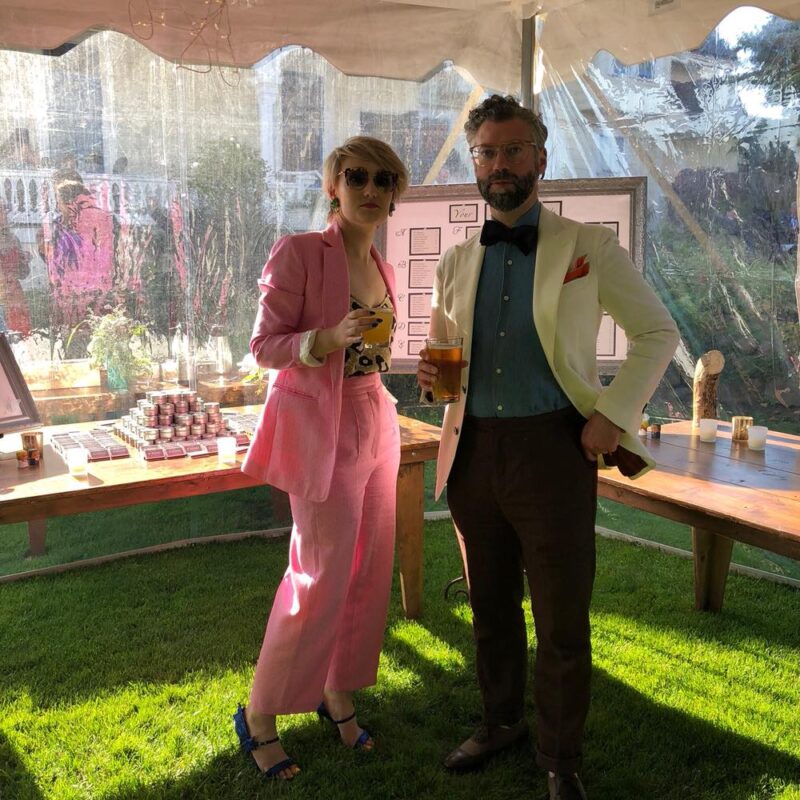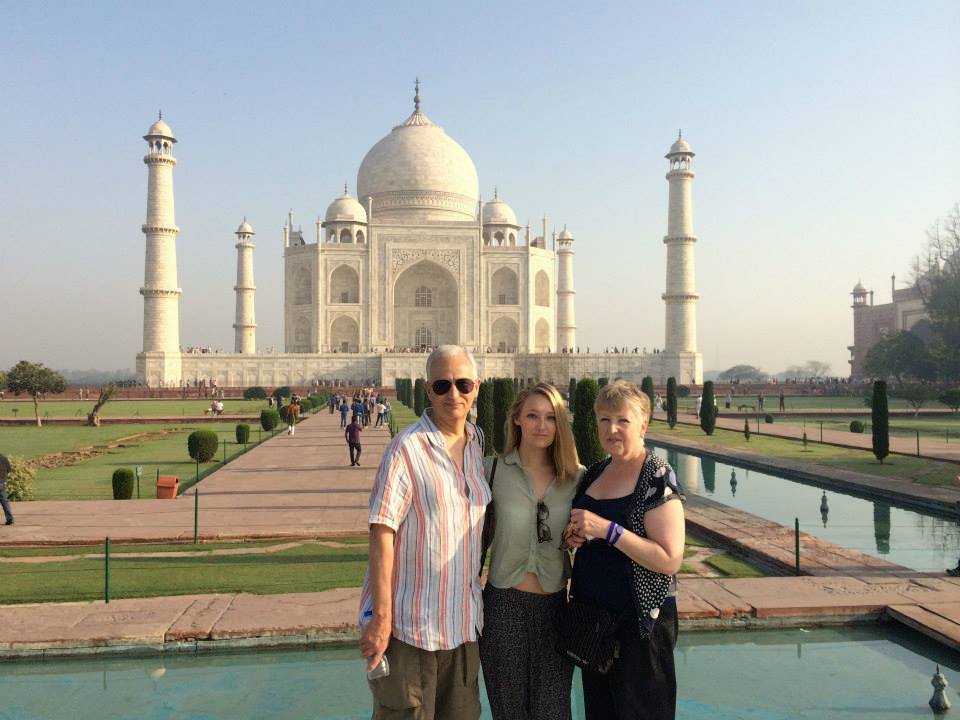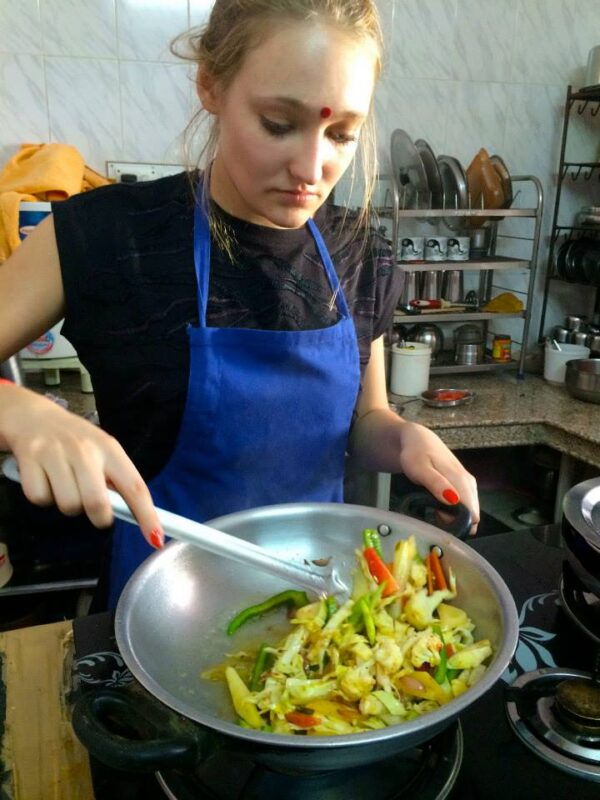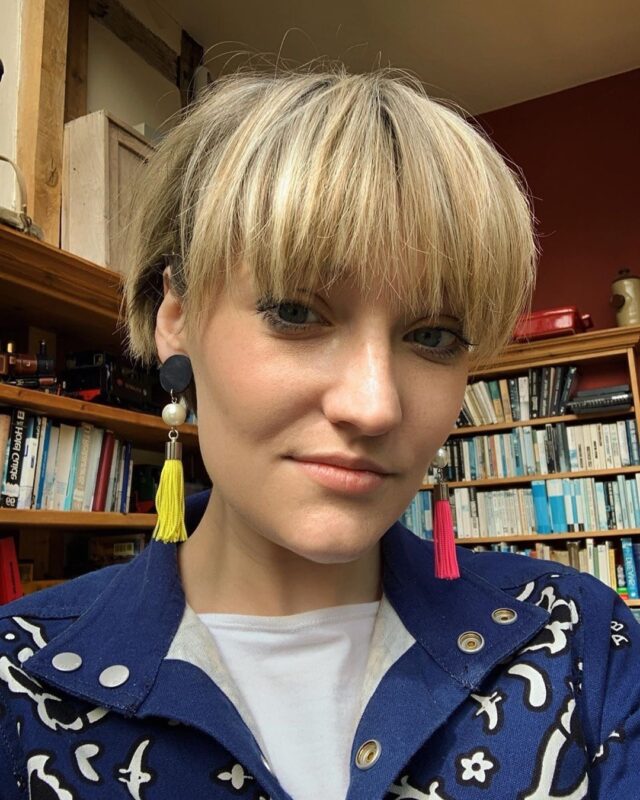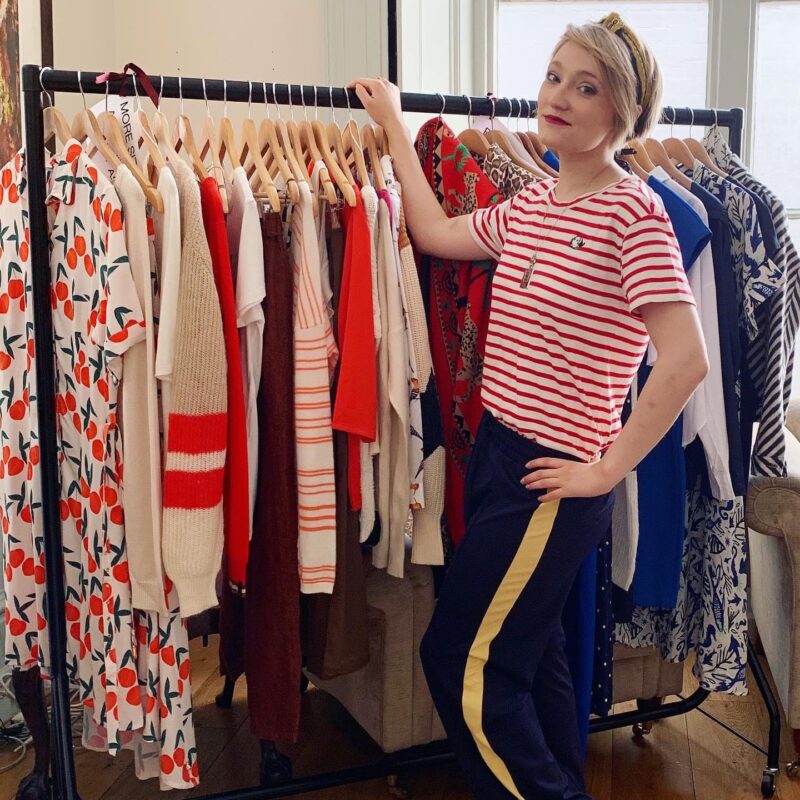Meet Jacynth Bassett, Cambridge´s graduate, founder of the-Bias-Cut.com - the first age inclusive online independent fashion boutique – and the movement Ageism Is Never In Style. She is also the monthly style columnist for several leading 40+ publications; contributed the style chapter to the internationally published book 'Having It All After 50. She was finalist for the Women of the Future Awards "Entrepreneur Category" in UK.
Who is Jacynth Bassett ? define yourself
A walking contradiction.
How were you as a kid?
I was very chatty and loved performing but I don’t really remember myself much as a child. I was a ‘late developer’, so around the age of 11 I became very academic and driven. I was still sociable, especially from the age of 15, but I was resolutely focused on getting the best grades so I could study Law at Cambridge.
You have a Bachelor of Law at the University of Cambridge and a Master of Arts in the same University, why did you choose those courses of study?
I studied Law at Cambridge as, from the age of 13, I had envisaged becoming a Barrister. Law appealed to me as it involves analytical and logical thinking, and I wanted to be a Barrister as I like public speaking and presenting, and always wanted to be self-employed.
However whilst I was at university studying Law, I realized that, whilst I found law interesting (and still do), it wasn’t my passion; I didn’t love it enough to make a career out of it. But I don’t regret studying it as it has provided me with extremely useful skills and I still think in a very lawyerly way which can be advantageous in business.
As to the M.A – it’s an honorary degree that all Cambridge graduates are presented with these 3 years after graduating. It’s controversial as it doesn’t require additional study, but I think it’s fair as Cambridge undergraduate degrees are extremely intensive and are more like doing MAs in the first place.
"Perseverance, resilience and lateral thinking. I’ve been faced with a lot of barriers and rejection – as we all have - so I’ve always continued to pick myself up and think of other ways to move forward"
You studied law but your professional experience is more related to fashion, you worked as a style columnist in different publications and even now you have a fashion company the-Bias-Cut.com, the first pro-age online independent fashion boutique, curating unique collections by contemporary designers for style at every age. How did you jump from the laws to fashion?
I wouldn’t say my professional experience prior to starting the-Bias-Cut was in fashion – my writing for different publications has come since. Instead my work experience was very law focused, and I even did legal work to raise funds to start my business. In fact, I actually had no prior experience in Fashion before launching the-Bias-Cut.com.
But it was whilst studying Law that I realized I wanted to go into business and fashion. Whilst at Cambridge, I was president of the university’s Law Society, which is one of the biggest and most prestigious in the world, and I was managing a budget of nearly 6 figures, lead a 20+ committee, and solely had to negotiate sponsorship deals leading law firms. I also resolved some serious long-term financial issues, and essentially I restructured the society into operating like a sustainable business. And it was through this that I realized I had an aptitude for business.
The cross to fashion in particular came about because I wanted to go into an industry that I was passionate about, and the fashion industry had always been one of my biggest interests since I was young. Despite not working in the industry, I had a thorough, self-taught understanding of the industry, so it felt natural as the industry for me to go into.
Tell us more about the-Bias-Cut.com, what does it make unique?
The-Bias-Cut.com is the first age-inclusive independent online fashion boutique, which I founded after growing frustrated at seeing women, like my mum, increasingly treated as invisible by the Fashion Industry as they aged. So it became my mission to create the first online shopping destination that cuts through age prejudice in fashion, and empowers women to embrace and celebrate who they are today.
To do this, we uniquely curate our collections with the grown up, stylish woman in mind. We sell pieces by over 30 independent labels – including my eponymous line – focusing on quality, flattering cuts and modern style. And pride ourselves on understanding that, whilst a woman’s love for style doesn’t fade, her body and lifestyle may have done, so we cater to that. Women can shop by their body shape, and other tailored filtered such as other areas they wish to cover or show off. What’s more, all our pieces are modeled by ‘real women’ of different ages, shapes, sizes and heights. And because of our expert understanding, we have a return rate ¼ of online average.
To further our mission, we have a global community/movement called Ageism Is Never In Style®. It unites people around the world to campaign against ageism in fashion, and to support and inspire one another, and it includes a very successful badge campaign.
"It’s vital to be aware of your strength and weaknesses and how you can improve. I don’t trust anyone who says they know everything about business because it’s virtually impossible"
You also founded Advocates For Ageing, which is a collective of industry experts campaigning to change how the world talks about and views aging. Where this idea came from and why?
Through my work I’ve met and connected with hundreds of people globally who are professionals working on fighting ageism in their respective fields and/or changing the conversation around ageing. But it was clear there wasn’t a central point of information. So Advocates For Ageing was born out of an idea to create a ‘go-to’ source of expertise on ageism across society.
However, AFA has also now developed into becoming a network that unites and connects professionals globally, as well being a source of expert knowledge and insight into ageism and ageing. So we can now all discover and share our work with each other, as well as society at large.
You were named by Global Health Ageing as an 'Ageism-Fighting Trailblazer', you are the founder of the-Bias-Cut.com - and of movement/community 'Ageism Is Never In Style'. You are also the monthly style columnist for several leading 40+ publications; contributed the style chapter to the internationally published book 'Having It All After 50', and guest writes for other publications. You regularly consults and speaks on panels, podcasts, radio and events discussing style at every age, including having chaired B(old) Festival's panel "Fashion Fades, Only Style Remains" at the South Bank Centre. What´s the recipe for your success?
Perseverance, resilience and lateral thinking. I’ve been faced with a lot of barriers and rejection – as we all have - so I’ve always continued to pick myself up and think of other ways to move forward. So I’ve been creative and networked tirelessly, and perhaps most importantly, I’ve surrounded myself with people I hugely respect and trust. From my team to mentors to friends and family, I’m very lucky to have people who believe in me, are supportive, and are extremely talented and skilled in their own right.
In return I’ve also tried hard to support others, give back, and never take anything for granted. And I’ve also always been very self-critical and analytical which, in one way it’s a bad thing, but in another it helps be me reflective, admit my mistakes and errors. I think one of the biggest follies of an entrepreneur is thinking you’re always right and untouchable.
What does it mean for you to be a finalist for the Women of the Future Awards 'Entrepreneur Category? we know these awards places the spotlight on incredible women working in the UK today.
Being recognized for my work is always very gratifying. And who doesn’t love the idea of getting dressed up for an awards ceremony?! But as someone who has attributed far too much to grades and awards in the past, today I try to see them as a nice bonus rather than validation. I think awards are brilliant for supporting people’s work and giving it exposure, but ultimately the biggest reward for me is knowing the positive impact my business and work has had.
Everybody has had dark moments in their lives, what have you done to get out of that phase?
I’ve had clinical anxiety and depression for a large portion of my life; I was diagnosed with anxiety when I was 19, and depression at 22, but realistically I’ve had both since my early teens. With the help of intensive, long-term therapy and medication, today I’m able to cope much better than before, but that doesn’t mean I don’t have dips which can be very debilitating. They can last for quite a period of time, but what helps me cope is being kind to myself, rather than beating myself up, and the love and support of people around me.
What is the reality of your day-to-day?
My day-to-day largely varies depending on the time of year. The fashion industry and retail can have some very manic, busy periods, and then some much quieter ones. And it’s this diversity that I enjoy; I’m not really someone who likes having a set routine.
That said, an average day usually involves a few hours working in my office from home, going to a few meetings in central London (these can vary from visiting designers and showrooms, to working with my team and focusing on strategy), and then managing social media in the evening. And amongst it all, sending about a hundred emails a day!
I’m not a morning person, and I’ve come to accept that rather than force myself to perform at a time when I’m only half awake. So I generally wake up later than most, but I also work late as I’m a night owl. I do find it hard to switch off, and my boyfriend often has to pry my phone out of my hands, but I do try and fit in time to do exercise or see friends.
"So the conversation shouldn’t focus around whether women can or can’t have it all, it should just focus around how we can support and aid women in achieving the life they want"
Do you have any particular philosophy that guides your career decisions?
Always act with integrity, stick by your values and morals, and trust your gut. And, as my dad says, “nothing can’t be fixed except death and taxes!”.
What do you love most about your job? & what is the most difficult part?
What I love the most is hearing from customers how much joy and confidence we’ve given them. Knowing we’ve made a difference to even just one person means so much.
The most difficult aspect is the uncertainty. Fashion and retail in particular has been going through a very tough couple of years (and that was before coronavirus hit!),so it hasn’t been the easiest of rides for anyone, but what I find hardest is not blaming myself for everything.
What’s the biggest lesson you’ve learned over the years?
The ability to admit you’re struggling and knowing that asking for help is a strength, not a weakness.
As an entrepreneur, what is the one thing you do over and over and recommend everyone else does?
Self asses. It’s vital to be aware of your strength and weaknesses and how you can improve. I don’t trust anyone who says they know everything about business because it’s virtually impossible.
What is one strategy that has helped you grow your business?
Staying ahead of the curve. The small size nature of my business means we can’t always invest in big technology, but we are constantly aware of news, trends and what’s coming next, and we implement new ideas and features wherever possible. For example, I’m proud that we’ve spotted and stocked some of the hottest brands before others, and we are one of the first online boutiques to launch a Cost-Per-Wear calculator to help our customers shop smart and sustainably.
What do you like to do in your spare time?
My other lifelong passion is dance – I am trained in ballet, modern, tap and hip hop dance – and from the age of 3 till 18 I danced about 7 hours a week. I can’t do that now, and unfortunately I have a long-term back injury that has set me back a bit, but I still go to hip hop class every week (it’s my strongest style of dance), and I do Pilates which has really strengthened up my body and helped with my injury.
When I’m not doing that, I love food so I love trying new restaurants with family and friends. But a lot of the time I’m just chilling on the sofa with my boyfriend watching Netflix!
Many authors say women can and must strive to have everything – a shining career, blossoming family life and a perfectly balanced lifestyle all at once, others point out that– then women are placing unrealistic expectations on themselves if they believe they can have it all, you live with your boyfriend, don´t have kids so according to your experience, what do you think about these statements?
If I’m honest, I don’t find it very helpful talking about whether women can have it all or not. I think it played its part in the 80s when women were starting to have careers, but today it’s an outdated notion that does nothing to further the feminist agenda. Whatever the conclusion, it’s an unhelpful one: either we’re setting an unrealistic standard or we’re resigning ourselves to accepting the gendered bias engrained in society.
We never talk about whether men can have it all or not. We just accept that he might have to make compromises if he wants a family as well as a career. Ultimately nothing is ever going to be perfect, we all have to make sacrifices. Men included.
So the conversation shouldn’t focus around whether women can or can’t have it all, it should just focus around how we can support and aid women in achieving the life they want. And this will differ from one woman to the next, depending on her values. For example, I feel very content with my work/life balance, even though it is tipped heavily in favor of work. For me, work is a passion, and I’m fortunate that the same goes for my boyfriend. So we understand and respect the other’s desire to work, and support each other’s hopes and ambitions. But, as far as we’re concerned, we’re still a team and have a very strong relationship. However, someone else might think I have an awful life because they value and would want different things in life.
Ultimately we shouldn’t define or judge women by the lives they choose to live. Everyone has different values, and even if we don’t share them, that doesn’t mean they’re wrong.
" I’ve met male investors who’ve said they’d only invest in a female founder if she had a male co-founder, and I’ve witnessed investors much more readily investing in a male run business than a woman’s"
What are your plans for the future?
To continue to have an impact and make a difference on an increasingly bigger scale. And to move to a home where we can have pets under the lease - I don’t intend to have children, but I do want a dog!
There is still the glass ceiling for women in the world: Fewer opportunities, jobs underpaid just for that fact of being a woman, etc. Have you experimented the glass ceiling? if yes, what are the biggest challenges you have faced and how have you overcome them?
I’m in a relatively rare situation where I work in an industry where the majority are female. That said, in the higher roles they are still largely occupied by men, which needs to change. It hasn’t directly affected me, but I have witnessed a lot of women being passed up in favor of men for roles and opportunities.
Personally I’ve experienced the glass ceiling more when it comes to investors, the vast majority of whom are men. I’ve met male investors who’ve said they’d only invest in a female founder if she had a male co-founder, and I’ve witnessed investors much more readily investing in a male run business than a woman’s, even if hers is much more developed or established.
And it gets worse when you have a business that’s very female centric. I know of female founders of a menopause-related business being told their market was too “niche”!! And, with regards to my own business, I’ve met many investors who clearly don’t understand its purpose or its underlying values. For example, they might say ‘just use younger models because they sell!’, not understanding the emotional significance of featuring women of different ages.
I’ve simply overcome this issue by refusing to sell out. I have had opportunities, but as soon as it became clear the investors would uproot the core values of my business, I walked away. It has meant the business has been growing on a small scale, but I would rather than it be turned into something it was once the antithesis of. I will only allow external investment when the time is right and I’ve found the right investors who, most likely, will be female.
What tips, can you give to young girls who want to become fashion entrepreneurs like you?
A lot of girls say they want to go into fashion because they love clothes and aspire to the glamorous lifestyle. But the industry is far less glamorous than it appears; success in it involves a huge amount of grafting, intellect, energy and effort. People associate fashion with bimbos, some of the most capable, intelligent people work in the industry – it’s not $406 billion industry for nothing!
Also, it’s vital you actually like the industry, not just the end product. It is hugely competitive and can be ruthless, so you have to be able to withstand that. And even if you want to disrupt the industry, you must be able to understand and cope with how it works because, despite it claiming to be forward thinking, it’s actually very conservative and set it its ways and it has a definitive hierarchy. So you need to be able to work with that even when trying to make a difference.
"People associate fashion with bimbos, some of the most capable, intelligent people work in the industry – it’s not $406 billion industry for nothing".
I think in your position, many people may have the wrong idea of who you really are (personally), and what do you (professionally), with this idea in mind, what is being Jacynth and what´s not?
It’s very common for people to have the wrong idea of me. Whilst I’m not ‘two faced’, I am multifaceted, and it’s extremely rare for someone to see every side of me. Probably the only people who’s ever seen them all is my boyfriend and my therapist! I’m definitely ambitious and focused, and I will make tough decisions, but I still agonize over them. A lot of people assume I’m quite self-assure, even arrogant, when I’m quite the opposite. I pretty much beat myself up over everything and I am constantly anxious, but I hide it very well, which can lead to a different impression.
I’m much more creative than people realize, and I have a very goofy, playful side. I have a strong and very dry sense of humor and, whilst I am extremely controlling professionally, I’m very laid back in my personal life - I’m beyond messy! Whilst work is very important to me, my family and loved ones are paramount - I will drop work in a second for a loved one if they need me. And I have unwavering values and morals.
Who is the woman you admire the most and why?
I don’t really admire one person per se, but rather aspects of lot of different women.
In particular I admire my mum for her unwavering commitment to and support of her family; I admire Caryn Franklin for her determination and perseverance to make positive change in the fashion industry; and I admire Natalie Massenet for revolutionizing` the fashion industry.
Something else do you want to add or share with us?
My goal in life is to be happy. And I’m still discovering what that means to me.
Name: Jacynth Bassett
Sector: Fashion
Company: the-Bias-Cut.com
Designation: CEO & Founder
Country: UK
Social media:
https://twitter.com/the_bias_cutcom

